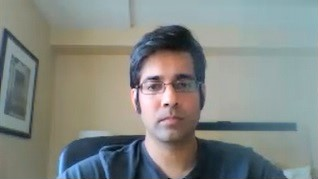With Jodene Wylie
Your short story, The lesser man, is set for publication in down river road, a literary journal in Kenya. What is this story about and why was down river road the perfect place to share this story?
In essence, The lesser man is about engaging spiritually with oneself and others in the everyday. Protagonist Akihito Nakamura’s terms of engagement are applicable to any human dynamic or worldly setting. The lesser man is set in a public library – I have witnessed the everyday of that.
The “Ritual”-themed issue of down river road was an apt place to share The lesser man since Akihito has an odd daily ritual: he embraces a tree. I was interested in down river road as I very much enjoyed studying literature out of Africa in university. Down river road is available at bookshops and holds readings and events in Kenya and I’m very pleased that (another version of) the story is a part of that.
*Update: The lesser man has since been republished by The Miramichi Reader and can be read here.
You recently won 2nd place in the Scugog Arts’ Literary Arts Competition. Can you tell us a bit about your story and why you were drawn to write it?
The Nashwaak Review first published the original and longer version of “The Complete Works of Min-Ju Kim” in 2015; the version that was one of the winners in the Scugog Arts Council’s Ekphrastic Competition is less, shall we say, acute. On an overarching level, the story is about trial through and triumph over depression; topically it is also a commentary on multiculturalism in Toronto, being in the Present and the necessity of self-accountability.
You have participated in a number of writing competitions and you’ve had your work shared in a variety of literary magazines. Do you find writing for a contest versus a literary magazine different? Is one more challenging than the other? How do you seek out and find new writing opportunities?
Mostly, I write a story first then concern myself about possible avenues to submit it after the tale is complete. Very rarely do I write specifically for a particular magazine or competition (not being solicited to do so either helps). The nice thing about that is that I’m able to prospect my piece to a wide range of compatible venues of varying missions and thematic calls. This is very much a grind and builds my overall awareness of the literary publishing world along the way. It takes meticulous online/bookstore research and once in a while, word-of-mouth assistance: a poet friend and fellow winner of the Scugog Arts Ekphrastic Competition, Eleni Gouliaras, informed me about that particular venue. I will make notes of compatible venues, record their deadline dates, thematic calls, word-count limits, and any other pertinent information. I also sign up for their newsletters.
What have you learned so far in your writing journey that surprised you? Where have you seen the most growth and change in your own writing?
What has surprised me thus far is how the advice of “write every day and read a lot” have not been true for me. I certainly don’t write every day (though I would like to) and – this may seem bizarre to read as it does to say – I have not read very much in the past few years. And that’s exactly how I’ve noticed the most growth and change: when I don’t buy into the notion that I should be this adamant, constantly-reading-and-writing writer. I am not knocking the advice; it just shouldn’t be taken as dogmatic adage and definitely shouldn’t detract from the quality of other aspects of living, which is often a consequence of excessive adherence to any particular ambition.
What are you working on next? Are you focusing on a novel, another short story, or something new and different?
More short stories, as well as creative nonfiction. I don’t detect a novel in me at this point.
What is your “must-read” book recommendation and what book has had the most impact and influence on your writing?
The “must-read” book I would recommend is the one that one writes for oneself. It may be a novel idea: what are your deepest Values and private Truths as a human being among others on the Earth? What are the fears you evade? Recognize the prescriptions, preconceptions and prejudices of your conditioned mind; examine how they have slyly embedded themselves within your impressionable and easily-impressed psyche from childhood. Write it all down; fill as many pages as you need to and don’t stop until you think you’re complete. And even then, still have more blank pages ready. Personal journaling often demands a truth-telling that you may not otherwise give yourself and others. One may discover one’s own writerly style doing this, but even better is when one discovers their life style. This is what Min-Ju does in The Complete Works and it’s nice that the story could be mentioned in answering this question.
Where can our readers learn more about you and your writing? Do you have a website or blog that they could check out?
I’ve been considering a website, but haven’t started work on that yet. Meanwhile, readers can peruse gracious literary publications such as Cloud Lake Literary who kindly interview me and link to or publish my work.
About Tristan
Tristan Marajh's work is published in the Canadian journals The New Quarterly, Existere: A Journal of Art & Literature, The Nashwaak Review, Ricepaper Magazine and upcoming in Blank Spaces Magazine. He is the recent winner of the 2020 Scugog Arts Council Ekphrastic Writing Competition for "The Complete Works of Min-Ju Kim", which also won 1st-Prize in The Free Association Books Short Fiction Competition. Born in Trinidad and Tobago, he now resides in Toronto.

